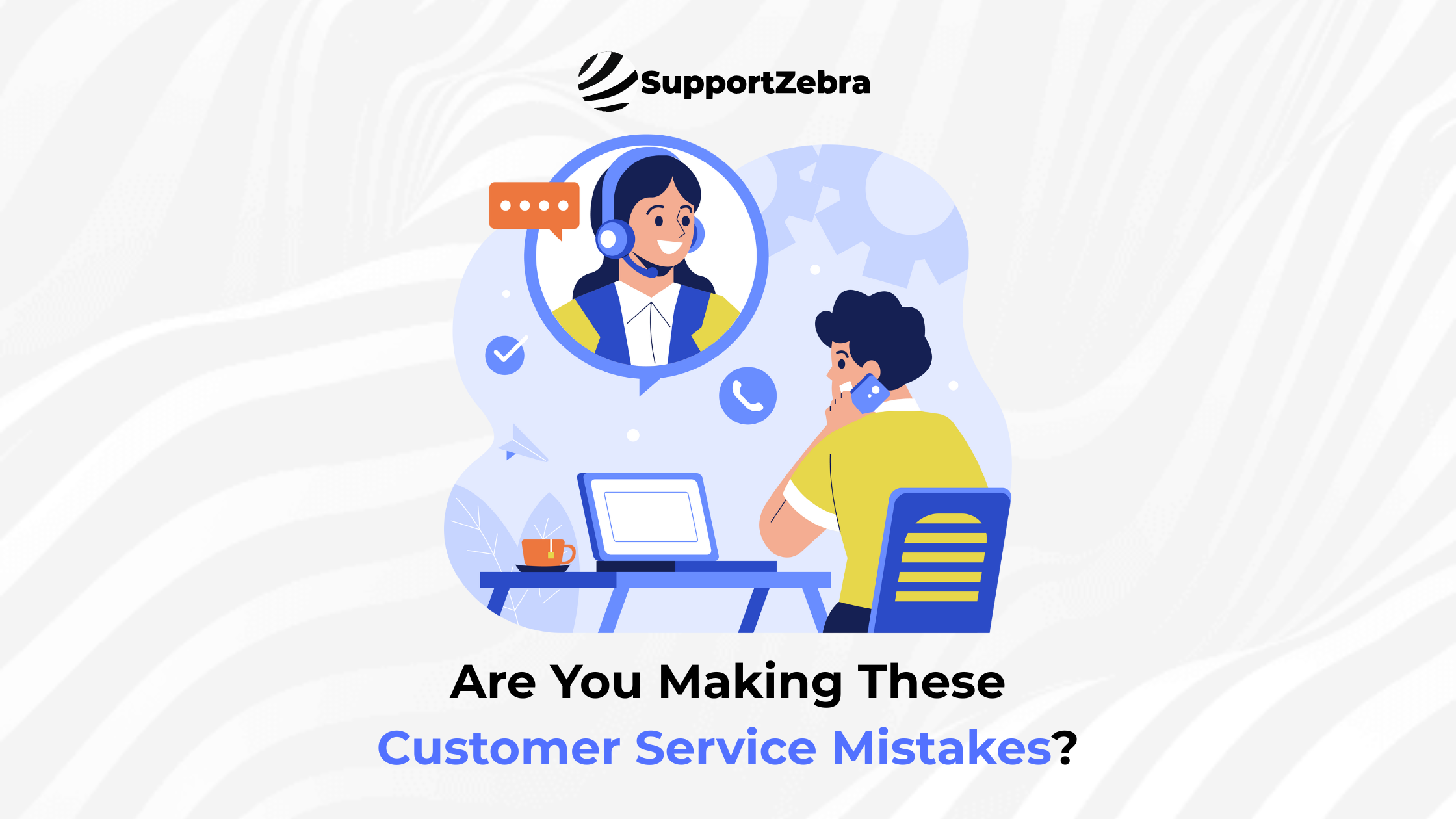Are You Sabotaging Your Customer Service? 11 Mistakes You Need to Stop Now
Key Takeaways:
- Common mistakes like slow responses, poor training, and broken promises can damage customer trust and satisfaction.
- Listening to feedback, showing empathy, and offering personalized support is essential to delivering standout service.
- Consistency across all customer service channels builds credibility and strengthens your brand.
- Avoiding these 11 mistakes helps businesses create better customer experiences and long-term loyalty.
What mistakes could be hurting your customer service? Great customer service is essential for success. Unfortunately, many companies unintentionally undermine their efforts by making common mistakes that negatively impact customer satisfaction.
This blog will highlight 11 critical mistakes businesses must avoid to improve customer service, ensure positive interactions, and build long-term loyalty.
Mistake #1: Failing to Listen to Your Customers
Listening actively is crucial for grasping what your customers want. Ignoring their feedback can harm your relationships and your reputation. Show empathy, ask questions that encourage discussion, and check in after resolving issues to strengthen your connections.
Mistake #2: Not Being Quick to Respond
Timely responses are crucial for maintaining customer satisfaction. Many expect a reply within four hours, but the average wait time is over 12. You can improve your response times by leveraging technology, setting clear targets, and keeping customers updated.
Mistake #3: Not Being Supportive
To satisfy customers, you must help them resolve their issues and proactively provide them with helpful information. Create a supportive environment by training your team, empowering them to assist, and leading by example.
Mistake #4: Being Impolite or Indifferent
Being rude or dismissive can push customers away. Always maintain professionalism by focusing on empathy, listening actively, and rewarding good behavior.
Mistake #5: Breaking Promises
Reliability is key to building trust. Set realistic expectations, keep customers informed, and ensure your team follows through to boost satisfaction and prevent negative reviews.
Mistake #6: Not Personalizing Service
Offering personalized service can significantly enhance customer satisfaction and loyalty. Utilize customer data, communicate in a personal manner, and tailor your solutions to foster stronger relationships and improve your business outcomes.
Mistake #7: Overlooking Feedback and Complaints
Customer feedback is crucial for improvement. Gather it regularly, address any issues, and use it to enhance your services, which helps build long-term loyalty.
Mistake #8: Lacking Understanding
Empathy is vital in customer service. To create strong, loyal relationships, show that you understand how customers feel by listening actively and responding positively.
Mistake #9: Having Poorly Trained or Uninformed Employees
Insufficient training can lead to bad service. Invest in comprehensive onboarding, regular training sessions, and ongoing development to empower your staff to provide outstanding customer service.
Mistake #10: Failing to Go Above and Beyond
When you exceed what customers expect, it leads to unforgettable experiences. Give your team the freedom to do more, appreciate their hard work, and inspire them to be creative to build customer loyalty.
Mistake #11: Inconsistency Across Different Channels
Having a consistent approach is key to earning trust and loyalty. Establish clear rules, utilize a centralized customer relationship management system, and ensure that service is consistent across all platforms to enhance your brand and keep customers satisfied.
Your Path to Superior Service: Learning From Common Mistakes
Great customer service is essential for business success, not just a bonus. We’ve seen that mistakes like ignoring customer feedback, showing little empathy, and being inconsistent can hurt your ability to create strong customer connections. We recommend that businesses review their current methods, identify areas for improvement, and make adjustments to enhance the customer experience.
At SupportZebra, we provide flexible, high-quality support teams for eCommerce and SaaS businesses. We aim to create a “WOW” experience by seamlessly integrating our representatives with your brand to foster genuine customer connections. We ensure smooth, multi-channel communication through comprehensive training and advanced technology.
Outsourcing your customer support to us boosts customer satisfaction, reduces costs, and allows your internal teams to focus on growth. With a proven track record and a collaborative approach, we elevate your customer service. Contact SupportZebra today to learn how we can improve your customer service and help your business grow!

